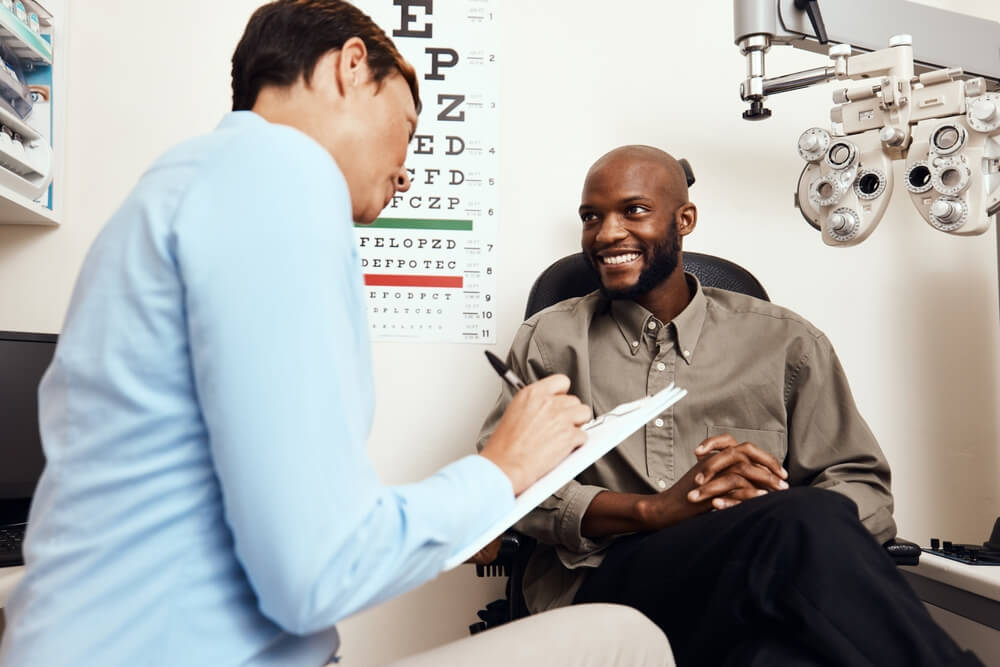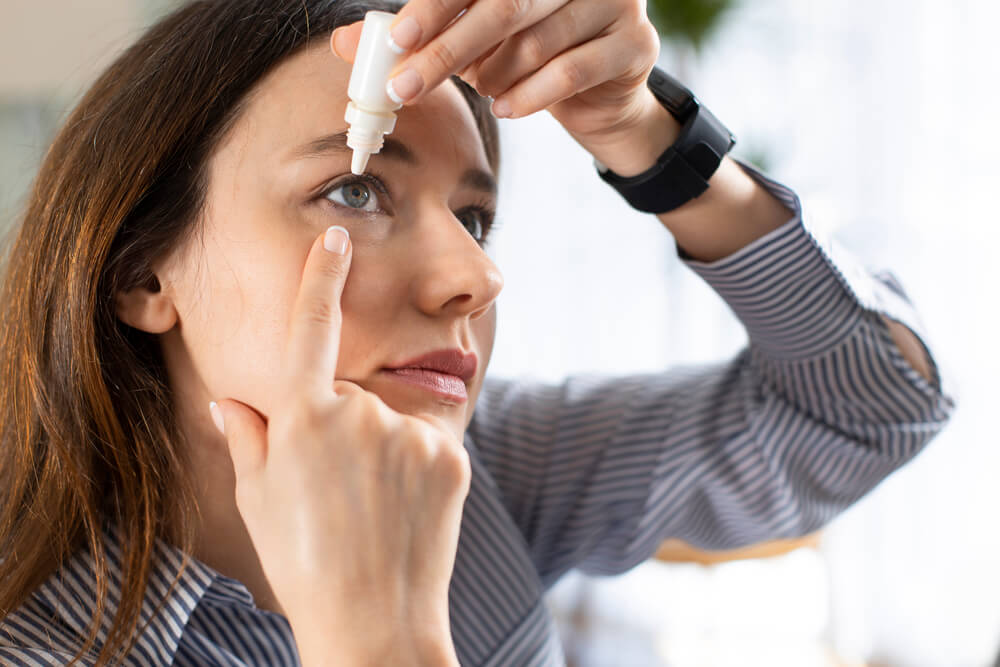5 Signs It Could Be Time for an Eye Exam
November 7, 2023
Eye exams are as important as annual physical exams and visits to see your dentist. Getting your eyes examined can even save your vision, as many eye conditions don't present symptoms in the early stages but can show signs that your eye doctor can see when examining your eyes closely.
Regular eye exams ensure that any eye conditions or diseases you may have are diagnosed and treated promptly. But in addition to routine eye exams, you may need to see an eye doctor for other reasons if you're experiencing eye discomfort or visual issues.
You may also want to see an eye doctor to try a different form of visual correction, like contact lenses. Keep reading to learn about 5 signs it could be time for an eye exam with your ophthalmologist to keep your eyes and vision healthy!
When to Have Eye Exams

When it comes to scheduling routine eye exams, you need to have them annually if you have refractive errors and wear glasses or contact lenses. Regularly scheduling eye exams allows your ophthalmologist to ensure your prescription is current. Having up-to-date visual aids will keep your vision as crisp and sharp as possible.
You may not need regular eye exams as frequently if you don't have a refractive error. However, you should still have eye exams every two years once you turn 40.
Turning 40 increases your risk of developing age-related eye conditions. You may need eye exams more regularly if you're considered at higher risk for eye conditions. Your eye doctor can assess your risk, so follow their recommendation of how often to schedule eye exams.
Regardless of your vision or risk for eye disease, though, almost everyone 55 and older should have an eye exam every year. Many age-related eye conditions, like glaucoma, cause irreversible damage to your vision.
Early detection and treatment is the only way to preserve your vision. Without noticeable symptoms in the early stages of these eye conditions, that can only happen through regular eye exams.
Outside of scheduling eye exams regularly, you should also see your eye doctor if you have any concerns about your eye health or vision. Here are five reasons you should schedule an eye exam, even if it's not time for your routine eye exam:
1. You Have Blurry Vision or Other Vision Problems
If your vision begins noticeably worsening over a short period, it could be because of several eye conditions. If your vision suddenly becomes blurry or you start to see a lot of spots or floaters, it may be due to an eye condition requiring prompt medical intervention.
Whenever your vision changes quickly like this, it's essential to have your eyes examined as soon as possible so these serious issues can be detected and treated. Sudden visual changes are not typical and should always be treated with concern.
Double vision can also be especially serious as it can be a sign of vision issues and neurological disease. Examining your eyes when you have double vision is an excellent place to start. If your condition is neurological, your eye doctor can refer you to an appropriate specialist.
2. You Have Eye Pain
Any persistent eye pain, irritation, or discomfort warrants an eye exam with your ophthalmologist. Many eye conditions don't cause physical pain, but ones that do are often issues that need immediate medical treatment.
Eye pain can be associated with retinal tears, retinal detachments, corneal ulcers, and several other conditions that can cause vision loss if not treated promptly. If your eye pain is severe and begins suddenly, seek immediate emergency medical care.
But if you're only experiencing mild eye pain that doesn't go away on its own, you should make an appointment with your eye doctor for an eye exam as soon as possible. Your eye exam can help determine the root cause of your eye pain and appropriate treatment measures.
3. You Have Dry Eyes

Dry eyes can cause many symptoms. Common symptoms associated with dry eyes include burning, grittiness, foreign body sensation, watering, or eye fatigue. Your eyes may become dry if you're dehydrated, exposed to certain irritants, or are in a particularly dry environment.
When you have dry eyes that don't get better when you use over-the-counter artificial tears and address the possible trigger, it may be because of dry eye syndrome. Dry eye syndrome is a prevalent and common eye condition that can cause permanent visual problems when left untreated.
That's why it's so important to have your eyes examined if you have persistent dry eye symptoms. If you have dry eye syndrome, the ophthalmologists at Maryland Eye Associates offer many ways to treat dry eyes, including the TearScience® LipiFlow® system to diagnose and treat the condition.
Do you have dry eyes?
Schedule a Dry Eye Consultation
4. You Want to Try Contact Lenses
If you decide you're tired of glasses, you should schedule an appointment for an eye exam with your eye doctor to discuss getting contact lenses. You cannot simply order contact lenses online using your glasses prescription.
The prescription used for contact lenses differs from those used for your glasses. Your eyes have to be sized and assessed by your eye doctor before you can use contact lenses.
When you see your eye doctor about contact lenses, they can examine your eyes, size them for contacts, and recommend what kind of contact lenses work best for you.
5. You Want to Have a Vision Correction Procedure

If you want to explore your vision correction options outside of glasses and contact lenses, you may want to consider a procedure like LASIK. At Maryland Eye Associates, our ophthalmologists can help you with all your eye care needs, including routine eye exams.
But we also offer vision correction procedures to help you achieve your dreams of visual freedom if you're a good candidate. The only way to undergo LASIK is by scheduling a consultation.
Whatever your visual needs, request an appointment at Maryland Eye Associates in Prince Frederick, MD, today!



